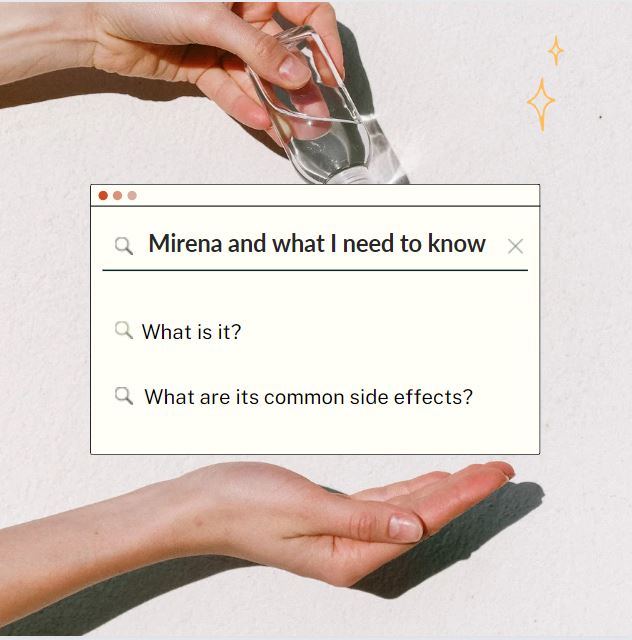Mirena is the #1 prescribed IUD in the U.S.
Choosing birth control is personal, and for women who want to prevent pregnancy—while also needing help with heavy periods—it’s important to know there is an option that does both. If you’re considering an IUD (intrauterine device) but also struggle with heavy periods, get to know Mirena:
- Over 99% effective at preventing pregnancy for up to 7 years
- The first and only hormone-releasing IUD that is FDA-approved to treat heavy periods—for up to 5 years in women who choose an IUD for birth control
- Can be used whether or not you’ve had a baby
- Can be removed by your healthcare professional anytime in case your plans change
- What is an IUD, like Mirena?
An IUD (intrauterine device) is a small, T-shaped device that’s placed in your uterus by your healthcare professional to prevent pregnancy. Getting an IUD does not involve surgery, but instead, can be placed during a routine in-office visit or immediately after giving birth. Once in place, it provides continuous, highly effective birth control.
- Common side effects of Mirena include:
Pain, bleeding, or dizziness during and after placement.
Changes in bleeding. You may have bleeding and spotting between menstrual periods, especially during the first 3 to 6 months. Sometimes the bleeding is heavier than usual at first. However, the bleeding usually becomes lighter than usual and may be irregular. Call your healthcare professional if the bleeding remains heavier than usual or increases after it has been light for a while.
Missed menstrual periods. About 2 out of 10 women stop having periods after 1 year of Mirena use. If you have any concerns that you may be pregnant while using Mirena, do a urine pregnancy test and call your healthcare professional. If you do not have a period for 6 weeks during Mirena use, call your healthcare professional. When Mirena is removed, your menstrual periods should return.
Start by scheduling an appointment with our health care provider to discuss your birth control options. Only you and your doctor can decide if Mirena is the right birth control for you.






